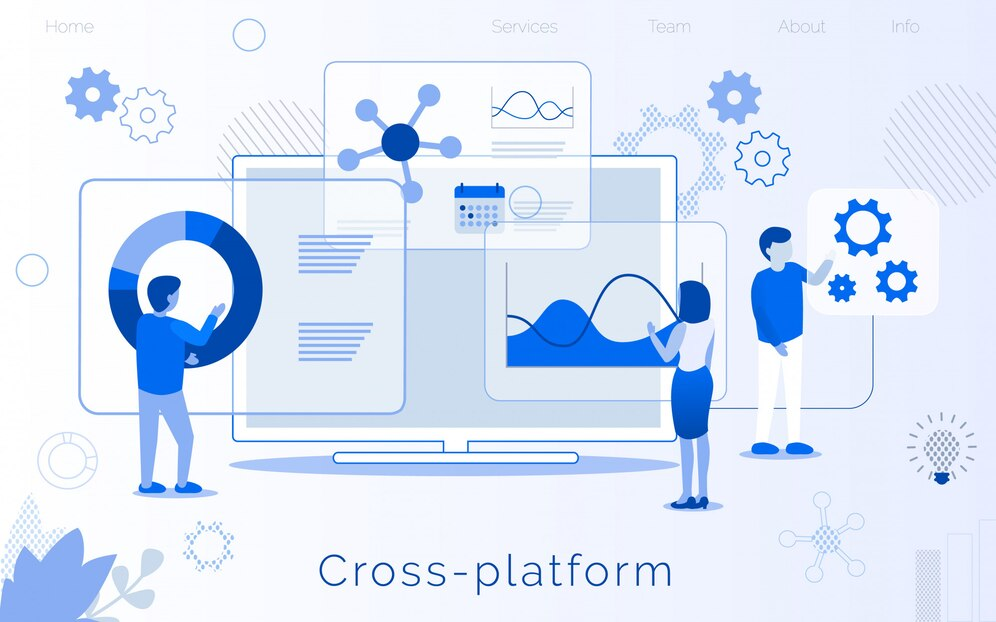When you’re launching a new mobile app, one of the first decisions you need to make is whether to go for cross-platform or native app development. Both approaches offer their own set of benefits and challenges, and the choice you make will have a significant impact on the user experience, development costs, and time-to-market. For businesses looking to get the most value out of their investment, this decision becomes crucial. But which is right for your project?
To answer this, you not only need to know the technical differences but also understand your business needs, timeline, and budget constraints. Whether you’re looking to hire mobile app developers for a native build or a cross-platform solution, making the right choice is essential to ensure your app’s success.
Comparing Cross-Platform and Native App Development to Choose the Best Path for Your Project
Mobile app development isn’t a one-size-fits-all process. Depending on your project goals, budget, and user requirements, you’ll need to choose between building a native app—tailored for either iOS or Android—or a cross-platform app that works across multiple platforms from a single codebase. Startups, established businesses, and even tech giants often debate which path to take for their mobile app development.
Should you prioritize platform-specific performance and features, or go for a quicker, more cost-effective solution? As you explore whether to hire mobile app developers for native or cross-platform app development, this guide will break down the key differences to help you make an informed decision.
1. Performance: Native Apps Lead the Way
When it comes to performance, native apps are hard to beat. Native apps are built specifically for one platform (iOS or Android) using platform-specific languages like Swift for iOS and Kotlin for Android. This allows the app to directly access platform-specific hardware and features, leading to smoother animations, faster load times, and overall better performance.
- Access to Native APIs: Native apps can fully utilize the device’s hardware, such as the camera, GPS, and Bluetooth, without compatibility issues. This makes them ideal for resource-intensive apps like games or those that need complex animations.
- Superior User Experience: Since native apps are tailored for a specific platform, developers can optimize the design and functionality based on the platform’s guidelines, resulting in a seamless user experience.
While native apps offer high performance, they require separate development efforts for each platform, which can increase time and costs. If your app’s performance is a key factor, and you have the resources to hire mobile app developers for both iOS and Android, native may be the way to go.
2. Development Costs: Cross-Platform is More Budget-Friendly
One of the biggest advantages of cross-platform development is its cost-effectiveness. Cross-platform frameworks like React Native and Flutter allow developers to write a single codebase that works for both iOS and Android, drastically reducing development time and costs.
- Single Codebase, Multiple Platforms: Developing one codebase means you only need to hire one team of developers rather than two. This can cut your development costs by up to 50%, depending on the complexity of your app.
- Faster Time-to-Market: Since developers don’t have to write separate code for each platform, the development timeline is shorter. This allows businesses to release their app faster, gain user feedback, and make necessary improvements.
However, while cross-platform development reduces costs, it may not fully replicate the performance and user experience of native apps. Businesses with tighter budgets often choose to hire mobile app developers experienced in cross-platform frameworks to balance cost and efficiency.
3. User Experience: Tailored vs. Universal Design
User experience (UX) is one of the most critical aspects of any app. In terms of UX, native app development offers a superior experience because it’s designed with the platform’s unique features and design language in mind. For example, the navigation, gestures, and overall flow in a native iOS app will be different from a native Android app, but both will adhere to their respective platform’s standards.
- Platform-Specific UI/UX: Native apps can fully embrace the design guidelines of each platform, making the app feel natural and intuitive to users. For instance, Apple’s Human Interface Guidelines help developers design apps that look and feel right at home on iOS devices.
- Cross-Platform Compromises: Cross-platform apps try to create a universal design that works for both platforms. While this approach is cost-efficient, it can lead to a “one-size-fits-all” experience that may not fully satisfy users accustomed to platform-specific features.
If providing an exceptional user experience is a top priority, and you’re willing to hire mobile app developers who specialize in iOS or Android development, native apps are the better option.
4. Maintenance and Updates: Cross-Platform Simplifies the Process
Once your app is live, it will require regular updates, bug fixes, and maintenance. Maintaining a native app can be more complex and costly since updates must be applied separately for iOS and Android versions. This is where cross-platform development shines.
- Easier Updates: With a single codebase, cross-platform apps can be updated across both platforms simultaneously. This saves time and resources compared to updating two separate native apps.
- Simplified Bug Fixes: Bugs and issues can be fixed in one place and reflected across both platforms, reducing the complexity and cost of maintaining the app.
However, it’s worth noting that cross-platform apps may face compatibility issues when new versions of iOS or Android are released, which can delay updates. That’s why businesses must hire developers experienced in managing updates across different platforms, whether they choose cross-platform or native.
5. Long-Term Scalability: Native Apps Offer Greater Flexibility
While cross-platform apps are a great solution for getting your app to market quickly, native apps tend to offer better long-term scalability. As your app grows in complexity, native development allows for more flexibility and customization.
- Advanced Features: Native apps are better suited for integrating advanced features and leveraging platform-specific functionalities. If your app plans to include features that require deep integration with iOS or Android, such as augmented reality (AR) or machine learning, native development is likely the better option.
- Scalability for Future Growth: Native apps are easier to scale as they allow for greater control over the app’s architecture and can easily integrate with new platform updates and features.
For businesses looking to build an app with future growth in mind, hiring mobile app developers who specialize in native development is a more strategic choice.
Choosing the Right Path for Your Project
Ultimately, the decision between cross-platform and native app development depends on your project’s specific needs, budget, and long-term goals. If you’re looking for cost-efficiency, faster time-to-market, and simpler maintenance, cross-platform development may be the right choice. However, if you prioritize performance, user experience, and long-term scalability, native development is likely the better fit.
By understanding the trade-offs between these two approaches and choosing to hire mobile app developers who specialize in your chosen path, you can ensure that your app meets your business goals and delivers the best experience for your users. Whether you go native or cross-platform, the key is to make an informed decision based on your unique project requirements.





